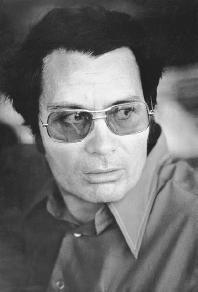Monsters and Mayhem! They Shoot Subtlety, don't they?
Day Four of Being Boring's Coverage of LA Film Fest
 The school at which my boyfriend teaches is a progressive liberal private school. Since we're in Los Angeles, there are quite a few Jewish student in attendance. The assignments vary in many ways, yet there is one which I keep returning to. In the middle school, students are required to make Nazi propaganda posters in order to understand why, exactly the German people executed the largest attempted genocide of the modern era. The project allowed them to form far more complex thoughts than "Hitler was evil." Was Hitler evil? Yes, if one were to use such a blanket term, I suppose Hitler is one of the better figures to whom that term could be attributed. But what is vital is that we understand why he did what he did. More so than merely understanding he was "evil."
The school at which my boyfriend teaches is a progressive liberal private school. Since we're in Los Angeles, there are quite a few Jewish student in attendance. The assignments vary in many ways, yet there is one which I keep returning to. In the middle school, students are required to make Nazi propaganda posters in order to understand why, exactly the German people executed the largest attempted genocide of the modern era. The project allowed them to form far more complex thoughts than "Hitler was evil." Was Hitler evil? Yes, if one were to use such a blanket term, I suppose Hitler is one of the better figures to whom that term could be attributed. But what is vital is that we understand why he did what he did. More so than merely understanding he was "evil."
Stanley Nelson, director of the new documentary, Jonestown: The Life and Death of Peoples Temple, is in dire need of such a lesson. Nelson's artless, by-the-book doco recounts the evolution of the People's Temple from Indianapolis to their infamous resting place in Guyana. It also, by default, must focus on Jones. As it recounts the events of his youth, you start to feel the editor's hand on the material and here the filmmaker saying, 'Oh, that'll make him sound more evil! Throw in the sensational part about the dead cat!' As no one really had anything good to say about Jones (mostly, 'I knew there was something not quite right about him's), one is hard stretched to see Jones as the enigmatic speaker that he obviously must have been in order to amass the thousands of followers who would eventually make up People's Temple.
By the time Jones moves the temple from San Francisco to Guyana and slowly begins to lose his grip on reality, Nelson has completely lost interest in Jones as a person, dismissing his actions with slight asides on drug addiction and alcoholism. Absent are the discussions on how a man of such modest means became the powerful "monster" for which he will forever be remembered. Instead, Nelson's documentary becomes (and though I will admit that this analogy is in rather poor taste, it is neither inappropriate where this film is concerned) a porno, supplying enough fodder and build up to make the end as horrific cinematically possible.
I would wager that Nelson has not seen Werner Herzog's magnificent Grizzly Man, for the immense power of the unheard is lost on him. Not only are we supplied with the intense wails of those who meet their infamous fate, pitted against Jones' "monstrous" sermons, but these horrific bits are place alongside photographs of those who are dying during happier moments of life. A smiling family with their baby. Two women laughing into the camera. Screams. Guttural moans. "It doesn't have to be this way! We're dying for peace!" More moans. Death rattle. Boom! A picture of the after math. Bodies. Bodies. Bodies. Cue melancholy music as an anonymous letter from one of the deceased is read aloud. You get the idea.
The events that occurred at Jonestown were horrible. Horrible beyond my wildest fears. But such horrors do not legitimize this sort of manipulation. To quote from Pare Lorentz's Good Art, Good Propaganda, "Thus, while I am in favor of the Chinese winning their own country away from the Japanese and while I personally was horrified at the Nazi invasion of Poland, I do not feel that just because a man has made a picture dealing with these subjects he has made a good movie." Think about that the next time you step into the theater to see one of the countless Liberal Docos that seem, as of late, to be invading like Romero's zombies.
Jonestown is not a theatrical documentary. It deserves its place, but that place is on the TV screen, alongside those other works of overt illustration which air late at night with over-zealous narration. The film certainly has its moments. Take the Peoples Temple member who weeps and says 'I was just sad that it didn't work out.' Complex moments like these seem to be lost on Nelson. Instead he guffaws Jones homosexual encounters with "Family" members. And what a pity. The Peoples Temple was, in theory, a wonderful thing. At some point, something went horribly wrong. I don't know what, and this film brings me no closer to understanding.

0 Comments:
Post a Comment
<< Home